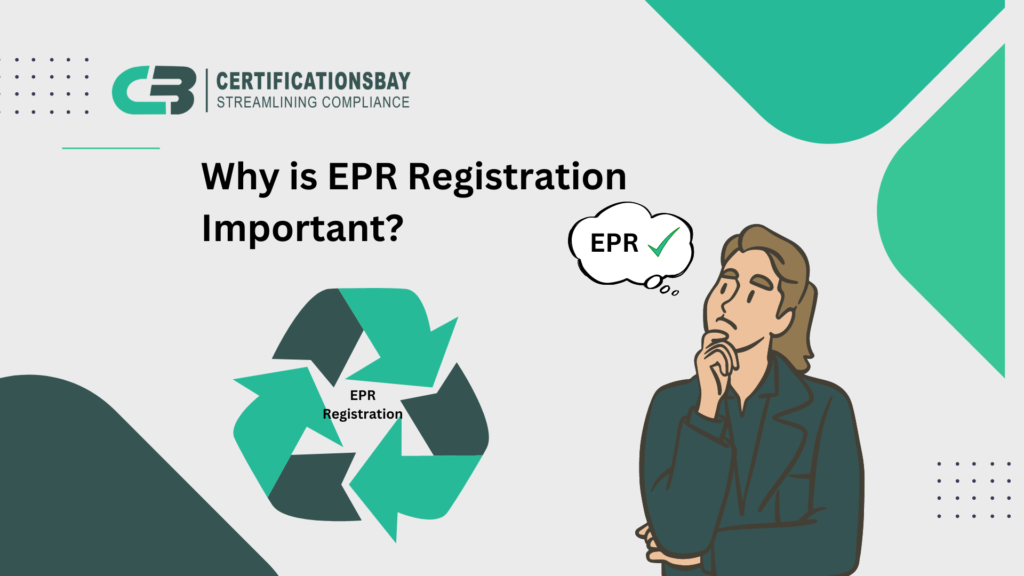
In the fight against plastic pollution, India has emerged as a frontrunner with its Extended Producer Responsibility (EPR) program. This program mandates EPR Registration for businesses involved in the production, import, or branding of plastic products. But why exactly is EPR registration important in India? Let’s delve into the key reasons:
1. Promotes Responsible Plastic Waste Management:
Traditional waste management systems often struggle with the ever-growing volume of plastic waste. EPR registration shifts the responsibility for post-consumer plastic management onto producers and importers. This incentivizes them to:
- Design eco-friendly products: Manufacturers are encouraged to create products with higher recyclability or made from recycled content.
- Invest in waste collection and recycling infrastructure: EPR registration fees contribute to establishing a robust system for collecting and processing plastic waste effectively.
- Promote consumer awareness: Producers can play a vital role in educating consumers about responsible plastic disposal practices.
2. Combats Plastic Pollution:
Plastic pollution is a global crisis, and India is no exception. Unmanaged plastic waste ends up in landfills, oceans, and even the food chain, posing a severe threat to our environment and wildlife. By promoting responsible waste management through EPR registration, India aims to:
- Reduce plastic waste generation: EPR incentivizes the use of less plastic and the development of sustainable alternatives.
- Improve plastic recycling rates: EPR registration fosters a circular economy for plastic, minimizing its environmental impact.
- Protect ecosystems and public health: Effective plastic waste management safeguards our natural resources and promotes public health.
3. Ensures Compliance with Plastic Waste Management Rules:
The Indian government has enacted stringent regulations (Plastic Waste Management Rules, 2016) to address plastic pollution. EPR registration acts as a crucial compliance measure for businesses dealing with plastic. Failing to register can result in:
- Heavy penalties: Non-compliant businesses face hefty fines for violating EPR regulations.
- Import clearance delays: Without an EPR certificate, plastic imports might be held up at customs.
- Reputational damage: Consumers are becoming increasingly environmentally conscious. Operating without an EPR certificate can harm a company’s image.
4. Levels the Playing Field and Promotes Fair Competition:
EPR registration creates a level playing field for all businesses involved in the plastic sector. By requiring everyone to contribute to responsible waste management, it ensures fair competition and discourages environmentally harmful practices.
5. Fosters Innovation and Sustainability:
EPR registration pushes businesses to innovate and explore sustainable solutions for plastic use. This can lead to the development of:
- Biodegradable or compostable plastic alternatives.
- Reusable packaging solutions.
- More efficient plastic recycling technologies.
In conclusion, EPR registration in India goes beyond just following regulations. It’s a crucial step towards a more sustainable future for plastic management. By registering for EPR, businesses can contribute to a cleaner environment, promote responsible consumption, and gain a competitive edge in the evolving market.
